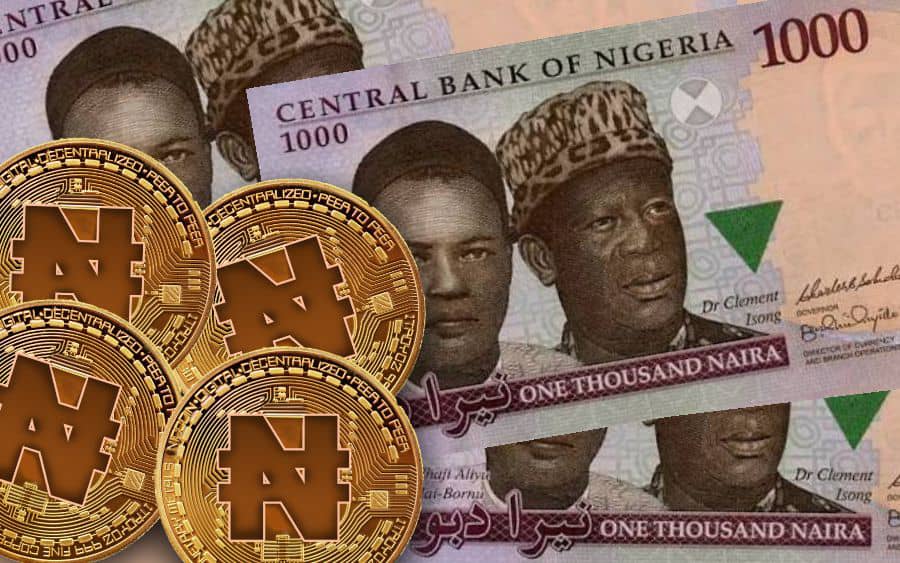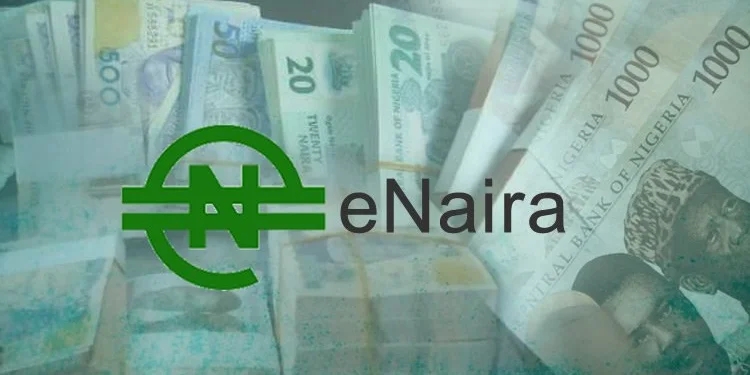During the week, Nairametrics broke the news that Nigeria’s Central Bank planned to launch its own digital currency (CBDC) by October 2021. The CBN’s foray into digital currencies seemed sudden given that the CBN typically shares a multi-year roadmap for transformational initiatives such as its financial inclusion and payments vision plans. Thus this announcement caught many by surprise and has been a subject of debate across many social media platforms.
Over the weekend, this issue dominated discussions on the Nairametrics weekly Club House Show “OnTheMoney” hosted by Ugodre with all the analysts on our panel expressing support for Central Bank Digital Currencies “CBDCs” with some areas of reservations.
READ: Central Bank Digital Currency: Is ‘NIGCOIN’ possible?
Why CBDCs are a great idea
For starters, CBDCs are very different from cryptocurrencies mainly because they are issued by the Central Bank of countries and are thus backed by sovereign liability (i.e. each unit is backed by the issuing government’s guarantees to redeem for face value) whereas private currencies value can always disappear to zilch at any point in time.
Additionally, each unit is a digital replacement to paper money, thus falls under the same monetary policy control and regulatory framework administered by central banks when they want to control money supply. Thus, unlike cryptocurrencies that are not controlled by any government, CBDCs are legal tenders that are issued by the government.
READ: China debuts blockchain-based digital yuan salary payments
Further advantages of CBDCs include that it is a more cost-efficient form of payment especially when it comes to transaction settlement and safekeeping, as well as even protection against unsophisticated theft. Especially as it is also built on the same technology that underpins cryptocurrency except that it is issued by the government.
From a monetary policy standpoint, some advantages with CBDCs include the ability for central banks to more actively channel funds directly to several sectors of the economy which it wants to use to stimulate economic activity. An example is its ongoing intervention funds.
READ: Ghana considers introducing a Digital Cedi
Conceptually when central bank digital currencies are transferred to beneficiaries, Central banks can track the utility of each unit better (in other words, it can see who has collected it and what it is being used for), helping it better measure the impact of money in the economy. Banks can also use this to determine just how well their borrowers use their money.
READ: UK may issue digital currency – BoE deputy governor
CBN’s digital currency: Why you should be worried
So why are people spooked about CBDCs if it indeed has so many advantages? That is because some of the advantages of CBDCs from a macroeconomic viewpoint have drawbacks. Specifically, the benefits of transparency and monitoring have drawbacks regarding privacy.
READ: World Bank refuses to assist El Salvador with Bitcoin integration
Let’s start with transparency, which is one of its major advantages, Firstly, just like cryptocurrencies, CBDCs by design allows the central banks to know who is holding what money. For example, imagine that CBN issues a N1000 naira note with serial number 347589. In today’s world, once that money is printed the CBN doesn’t ever know who it is with. However, with a CBDC, the CBN exactly knows who is with the money and what they are doing with it.
This power has clear ramifications for the economy good and bad. For example, the government can use CBDCs to surveil its citizens knowing exactly how much they earn, what they use the money for and where they keep it. The government can thus leverage on CBDCs to tax Nigerians especially those in the informal market or anyone who is trying to evade or even avoid taxes.
READ: The 4th industrial revolution and the birth of a new international monetary system
Privacy also becomes a major concern with CBDC especially for when you have a government that is gross on human rights violations. With CBDCs, the privacy that spending in cash gives you will not exist. Imagine the government leveraging CBDC to surveil human rights organisations and what they are doing with the money they get as donations. In the same vein, they can also track money that has fallen into corrupt hands, or stolen money or even money paid to kidnappers or terrorists. While most of these might seem good, there are many people who would prefer to have government out of their private business.
Disintermediation concerns: There are also concerns around the role of banks if CBDCs go mainstream. Banks today exist because depositors need to be able to safe keep funds with an intermediary in exchange for a promise that funds will be available upon request and the intermediary pays interest to attract funds for the duration.
READ: Banque de France successfully completes CBDC experiment with Switzerland-based crypto bank, SEBA
With CBDCs this becomes a challenge for banks. If for example, the CBN decides to give everyone a CBDC a virtual wallet where they can store their money, then the role of banks today is questionable. You do not need a bank to help you administer the wallet for you except the CBN decides to issue them new licenses in this regard.
Legal questions and operational framework for the Digital Naira
Operational Framework: The advent of CBDCs may require that the CBN issue new banking regulations as well as change its laws to allow it hold retail customer deposits. Alternatively, from an operational perspective, similar to what is happening in China with the PBoC, the CBN may simply direct banks to open virtual wallets for customers and instruct banks how to fund the wallets directly during interventions. That way, customer liabilities and account deposits remain with DMBs.
There are also pending clarifications about how the CBDCs will be administered. Should it replace cash 100% or should it coexist with cash? In other countries where CBDCs is live such as the Bahamas and China, the central banks have already expressly stated that their digital currency will be a fraction of the total money supply.
In other words, for now, it will co-exist with cash and be an immaterial proportion of the total money supply. However as the utility and adoption of digital currency grows, regular cash will be withdrawn. Thus an evolutionary approach is subject to adoption.
For Nigeria, with over N38 trillion of money supply, the CBN will also more than likely adopt an evolutionary approach. Therefore, the CBN will need to decide how much CBDCs should be issued as a percentage of total money supply.
Additional area of interest will be what sectors will be encouraged to initiate the utilization of the digital Naira. Will CBN start with FAAC allocations? Or Will they start with their intervention loans? In China, the government initiated trials by giving a sample of consumers money to spend with a pre-approved list of retailers who then deposited at a predetermined list of invited banks. i.e. circle of participants was limited to start off digital Yuan in the economy.
Legal Framework: In terms of laws, what will be the role of the National Assembly when it comes to the issuance of CBDCs? Will the CBN need legislative approval before it proceeds or can it just go ahead without carrying the National Assembly along. Is the presidency on board with this or did they just read it in the papers like everyone else? The last time a CBN Governor made a bold move about redenominating the naira, he got a reprimand from the President.
In summary, there are many concerns, questions, and hurdles to be addressed before Nigeria launches CBDCs. The announcement of an October 2021 date appears hurried from the CBN especially when the CBN is known for usually carrying out a lot of engagement and sensitization before embarking on transformational initiatives such as this. However, it is a development we will be watching with keen interest.
China, the world’s second largest economy has followed the Bahamas to open the doors for others to follow and Nigeria aims to be at the cutting-edge at least for Africa. However, unlike China, Nigeria is a democratic multi-party state with leaders with diverse interests and opinions with more influence required to drive adoption.
This article was updated to reflect new information




















Do you think after the launch CBN will lift the ban of crypto related institutions interaction with banks? Looking to that CBDC would reduce and diminish a lot of allegations on crypto currency and exchanges by the central bank?
I really appreciate your efforts so far in providing information on the Nigeria economy generally and financial advice across board.
On the issue of CBDCs, I think is a great idea if implemented going by what I have just read in your article.
However, I believe we should be more concerned about the implementation and positive impact of it on the economy as a whole rather than the Privacy Issue. Also, the legal framework and all grey areas mentioned in the article should be tackle first. Let the CBN carry all the stakeholders along and sensitize the general public on the operational modalities.
Meanwhile, I don’t believe any good thinking thinking Nigerians should be scared of monitoring financial transactions. Considering the kind of people we are, it will go a long way to curb Money Laundering, Corruption, Ransom Payment for Banditory, Terrorism Financing, Illegal charges of the customs, Nigeria Police and other Agencies.
Moreso, implementation should start with the Customs, NNPC, Government Agencies and Parastatals, NGOs, Federal & State Governments, NASS & Local Governments, Companies & SMEs that were given grants for proper use of funds.
In conclusion, Banks should be given express permission to open and run ewallet accounts on behalf of customers rather than asking them to obtain licences to do such, thanks and God bless all.